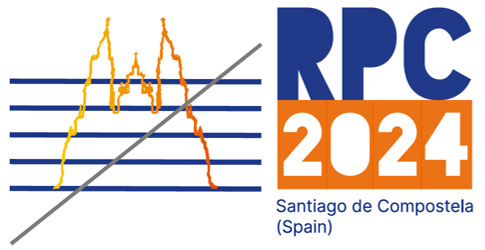Speaker
Description
An investigation of avalanche formation in Resistive Chambers with a cylindrical geometry is presented in this report. Resistive Cylindrical Chambers (RCC) were proposed in the last decade with the purpose of improving conventional Resistive Plate Chambers (RPC). The new geometry allows for the increase of gas pressure in the gas gap, leading to an increase in efficiency as well as a slightly inhomogeneous field which might lead to better containment of the electron avalanche. The development of RCC which will manifest these advantages, requires R&D studies, including an interplay between prototype testing and simulations.
In this report, we present a detailed numerical calculation of the field, a simulation of the interaction between the gas molecules in the working volume and a passing ionizing particle and the subsequent gas multiplication process. For considerable avalanche charges, local perturbations of the electric field arise, known as space-charge effects. The simulations have been performed using a collection of open-source software packages: gmsh for geometry and mesh generation, FEniCS for FEM numerical calculations and Garfield++ for modeling particle interactions, detection of a passing ionizing particle, and the probing of the resulting signal. Space-charge effects have been simulated by recursively adjusting the field in the gas gap during the formation of the avalanche. In addition, alternative gas mixtures are considered in view of the transition to eco-friendly gas mixtures for detectors used in modern-day high-energy experiments. The results are compared to conventional RPC detectors currently in use.

